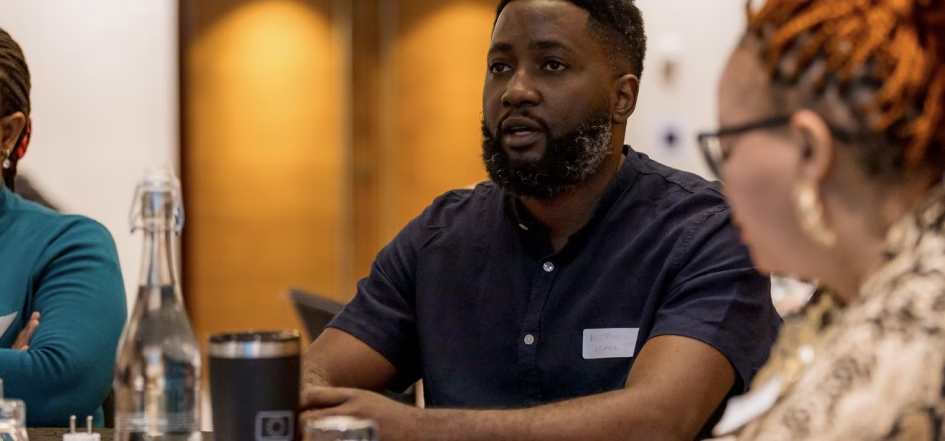This past week, I had the privilege of participating in the Excellence in Digital Government Training organized by the International Telecommunication Union (ITU) and the University of the Witwatersrand in Johannesburg.
Over the course of five days, we explored the building blocks of digital government — from strategy and interoperability to ethics and sovereignty — and reflected on how governments can truly leverage technology to serve their people.
Setting the Stage: Digital Government as a Socio-Technical Phenomenon
From the very first day, the training emphasized a truth that often gets overlooked: digital government is not just about technology, but about people, processes, and institutions. It is a socio-technical phenomenon, requiring cultural change, new skill sets, and adaptive governance. This framing reminded me that digital transformation is not a project with an end date — it is a continuous journey shaped by disruption, innovation, and social expectations.
Strategy and Architecture: Towards a Service State
The sessions on digital government strategy highlighted the shift from a command-and-control model of administration to the idea of a service state — one that is citizen-centric, collaborative, and open. Case studies like the Open Government Partnership (OGP) illustrated how transparency and co-creation can strengthen public trust.
For me, the One Laptop Per Child (OLPC) case stood out: it showed that technology alone cannot transform society without context, culture, and long-term sustainability being factored in. This was a reminder that digital transformation must be holistic and inclusive — otherwise, it risks becoming a series of short-lived projects rather than lasting systems of public value.
GovStack: Building Interoperable Foundations
A recurring theme throughout the week was GovStack — a framework of open-source digital building blocks designed to help governments digitize services efficiently and sustainably. From digital identity and payment systems to the information mediator, GovStack demonstrates how modular and interoperable solutions can overcome silos, reduce costs, and foster digital sovereignty.
The Unconditional Social Cash Transfer (USCT) use case made this practical, showing how different GovStack components could be combined to deliver seamless, secure, and transparent welfare services. For countries like Uganda, such frameworks could accelerate the implementation of our Digital Transformation Roadmap (2023–2027), ensuring digital services are not only efficient but also inclusive and trusted.
Data, Ethics, and Algorithmic Governance
One of the most thought-provoking sessions focused on data-driven governance and automated decision-making. We examined how Big Data, AI, and IoT can enhance evidence-based policymaking, while also grappling with the ethical dilemmas they raise — bias, privacy, accountability, and fairness.
Guided by UNESCO’s recommendations on Ethical AI, the discussion underscored that responsible governance must always be human-centric. Technology can help governments decide faster, but only ethics ensures they decide fairly.
Digital Sovereignty: Owning Our Digital Future
The week concluded with a conversation on digital sovereignty, framed through the role of Digital Public Goods (DPGs) such as X-Road. Here, the message was unmistakable: technology choices are not just technical, they are strategic. Nations that rely too heavily on proprietary systems risk digital dependency, while open-source, interoperable solutions can foster autonomy, resilience, and long-term control.
For Africa, this is particularly relevant. As the African Continental Free Trade Area (AfCFTA) advances, digital sovereignty and interoperability will be central to building trusted cross-border digital services and enabling digital trade.
What This Means for Uganda
Uganda’s Digital Transformation Roadmap envisions a future where digital services are inclusive, citizen-centric, and interoperable. The lessons from this training provide a clear blueprint:
- Invest in interoperable infrastructure (GovStack, DPGs).
- Strengthen data governance and ethical frameworks.
- Foster a whole-of-government and citizen-centric approach.
- Ensure that technology choices safeguard digital sovereignty.
Final Reflection
As I reflect on this training, one theme stands out above all: digital governance is about trust.
Trust that data will be used responsibly.
Trust that systems are interoperable and reliable.
Trust that governments act in the best interest of citizens.
Technology is only the enabler. It is strategy, ethics, and collaboration that ultimately determine whether digital transformation delivers public value.
I return from Johannesburg not just with new knowledge, but with a renewed conviction: Africa can build a digital future that is ethical, inclusive, and sovereign — if we make the right choices today.
This blog is part of my reflections as a participant in the ITU–University of the Witwatersrand Excellence in Digital Government Training held in Johannesburg, South Africa.
